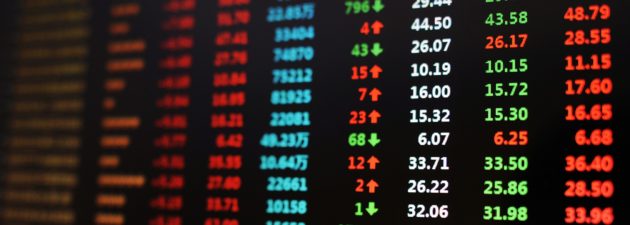Fund managers are sometimes criticised for glossing over underperformance and claiming extraordinary market insights, adjusting their ‘convictions’ to suit any circumstances. But we believe our sophisticated investors deserve better than that. We are not prepared to dress up our numbers or ‘morph’ our strategy, despite the present difficult investing environment.
February has been a tough month for our World Growth Opportunities fund, with Net Asset Value falling by 2.1%, amidst some of the most turbulent stock market conditions seen since the financial crisis of 2008.
We can pick out some fundamental reasons why investor sentiment is so nervous and unpredictable. But just as there was no particular reason for the earlier plunges in some market sectors, so it seems there has been no special reason for their rebound.
Energy and commodities was the first sector hit, as investors identified the apparent inevitability of deflation and stagnation. However, it then bounced back for little tangible reason, leading to a decent rally in commodity-driven stocks and stock markets.
Since we remain resolutely unexposed to these areas, a degree of underperformance was inevitable. Volatility is extreme. Following the rebound, oil and almost all other commodities flagged again, causing inflationary expectations across the globe to plummet, pressuring asset values generally, and reducing demand.
It is an unhealthy set of circumstances for risk appetite, and all the usual symptoms are in evidence. Bank stocks worldwide are seeing huge selling pressure, while growth stocks generally are being de-rated. Only the most defensive sectors remain reasonably stable.
The definition of ‘safe haven’ is being stretched to extraordinary limits. Despite a sudden zero interest rate policy the Yen strengthened by around 9% in February, a remarkable move by any standards, but clearly, in these times, a symptom of extreme risk aversion. It has always been a mystery to us why the Yen has safe haven status, given that Japan is the developed world’s most indebted nation.
Then, instead of rebounding on the back of a strengthening currency and zero interest rates, Japan’s stock market dropped sharply, with dire consequences for banking and export stocks in particular. We have no Japanese banks, but our holding in Fuji Heavy, the maker of Subaru cars, lost more than 23%, and most other positions were around 10% down.
The rest of Asia managed a degree of resilience, with the Hang Seng Index only 2.5% lower in February. China was less of an issue but India had a difficult time, with profit taking and a move to commodity producing markets causing the index to lose almost 8%. Maruti Suzuki, India’s largest car maker fell 21% due to the appreciating Yen, as it imports some of its parts from Japan. Indian Financials came under pressure after the central bank asked for more transparency of loan books. We sold HDFC Bank, but retained Indiabulls Housing Finance, which unfortunately lost 19% over the period.
Other markets have experienced equally febrile sentiment. In America, some excellent figures from Priceline.com sent the stock 20% higher, pulling Expedia with it. But a broker downgrade was enough to send Dexcom 21% lower in a single day, although it recovered following some encouraging results, to end the month (a mere!) 5% down. Continued redemptions from sector ETFs put relentless pressure on the healthcare sector. Acadia Healthcare was 4% lower in February but recovered a little following good figures.
Global markets now are as challenging as any of us have ever experienced, but we feel this is no time to be switching investment strategy, or finessing the news for investors. The long term fundamentals on which we base our portfolios are intact, including sustained economic growth in emerging markets, due to demographics, urbanisation and social trends. We continue to gently slant the portfolio towards the more defensive growth sectors of the market, and hope that in the process we can regain some ground.

